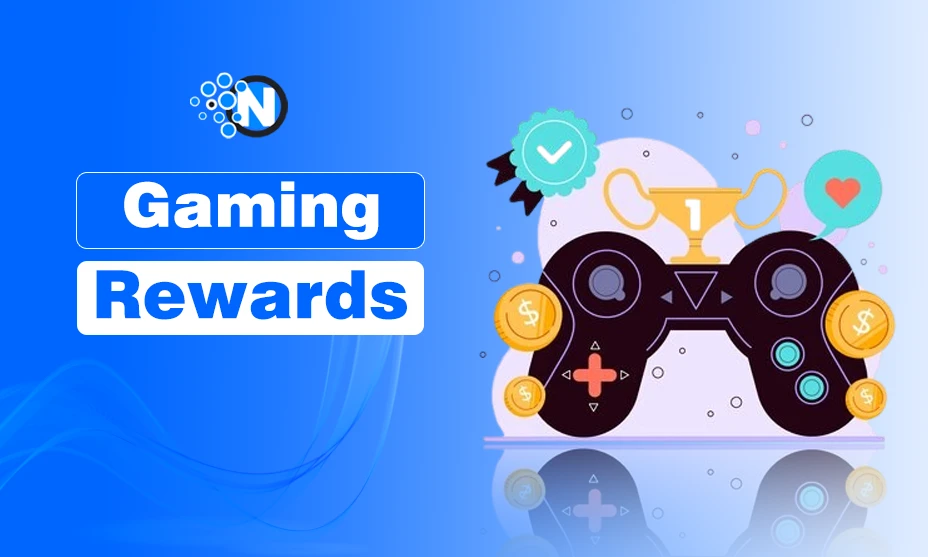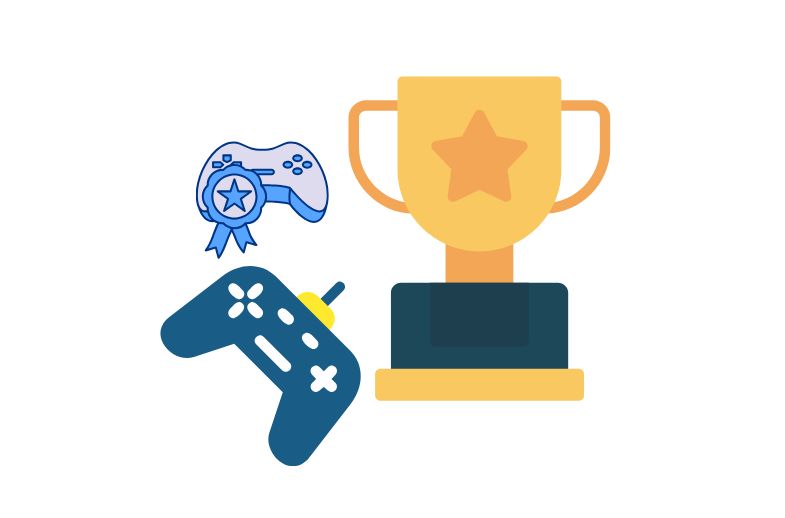How to Understand Gaming Rewards? Comprehensive Guide

In online gaming, rewards go beyond extras. Game developers craft them strategically to capture interest, encourage continued play, and ensure players return.
From the joy of discovering secret levels to the dedicated pursuit of leveling up, developers have honed the delivery of rewards to make gaming experiences both enjoyable and engaging. Every reward is designed to engage psychological triggers, ensuring the gaming experience is both fulfilling and addictive.
When you really look under the hood, you realize just how carefully balanced and engineered these reward mechanics are. Every little ding of XP earned, item discovered, or achievement unlocked taps into something deep in our brains that craves that sense of gratification and progress.
It’s an addictive loop that game creators have perfected, turning the whole gaming experience into an expertly tuned reward system.
The Psychology of In-Game Rewards
In-game rewards are fundamental to player engagement. They tap into the brain’s reward system, triggering dopamine release – the “feel-good” neurotransmitter that reinforces behaviors. This explains the compulsion to keep playing after getting a reward, as anticipating future rewards stimulates pleasure.
Beyond Dopamine, rewards leverage “variable reward schedules” – providing payouts at unpredictable times. This mirrors real-life reinforcement patterns like gambling, keeping players hooked as they chase the next big reward. As psychologist B.F. Skinner found, such unpredictability drives persistent behavior.
Together, these psychological hooks create a compelling loop. The dopamine rush combined with the anticipation of future rewards gives players ongoing motivation and satisfaction. Even without knowing when the next reward comes, they’ll keep playing in hopes of that next thrill. It’s an expertly engineered system that makes certain games maddeningly addictive.

Experience Points (XP) and Leveling Up
Experience Points (XP) are a cornerstone of many games, serving as a measure of a player’s progress and skill. Accumulating XP allows players to level up, unlocking new abilities, content, or challenges. This progression system provides a sense of accomplishment and motivates players to invest more time in the game.
As noted by George Mattingley, “From levels 1-10 and into later game stages, elements of different rewards, scheduling, and failure states occur.” This structured progression keeps players engaged by offering continuous goals and rewards.
Bonuses and Free Spins in Gaming
Bonuses and free spins are common incentives used in online gaming, especially in online casinos, to draw and keep players. Players may test out slot games with no financial risk thanks to free spins, which also provide them a chance to win real money.
As numerous well-known gaming websites have pointed out “Bonuses that you receive simply for registering with a casino are called free spins. You can play well-known slots there without having to invest any money. These rewards act as powerful marketing tools for gaming platforms in addition to improving the gaming experience.
Easter Eggs: Hidden Treasures in Games
Easter eggs are hidden features or messages embedded within games, often placed by developers as a nod to dedicated players. Discovering these secrets adds an extra layer of enjoyment and fosters a deeper connection between the player and the game.
These hidden elements can range from inside jokes to secret levels, rewarding players for their curiosity and thorough exploration. The anticipation and excitement of uncovering an Easter egg contribute to a richer gaming experience.
The Role of Loyalty Programs
Gaming loyalty programs provide tangible rewards for consistent player engagement – things like exclusive in-game items, discounts, or early access to new content. The goal is to build lasting relationships by giving players meaningful benefits for their loyalty.
As Ugami notes, “From exclusive in-game rewards to real-world perks, these programs have proven to be a game-changer for enhancing engagement and retention.” By aligning the rewards with player interests, these programs effectively encourage continued participation.
Achievements and Trophies
Achievements and trophies have become a staple in both console and mobile gaming. These virtual accolades are awarded for completing specific tasks or challenges, giving players a sense of pride and accomplishment.
In fact, a 2024 report by the Entertainment Software Association found that 78% of players feel more motivated to keep playing when meaningful achievements are within reach. These achievements also tend to foster friendly competition, as players can compare their hard-earned accomplishments with others.
Daily Login Rewards
Daily login rewards incentivize consistent player engagement. By offering small in-game perks for consecutive logins, developers create a routine for players to follow.
According to a 2024 GameAnalytics study, games with daily login rewards saw 25% higher player retention than those without, demonstrating the effectiveness of this reward structure. These daily rewards contribute to ongoing engagement and reinforce the habit of regular play.
Social and Collaborative Rewards
In multiplayer and social games, collaborative rewards encourage teamwork and player interaction. Rewards for achievements reached together, such as team-based quests or multiplayer challenges, motivate players to collaborate and build relationships within the game.
A 2024 study by the Digital Games Research Association found that social rewards significantly boost player engagement, as players often return to games where they feel connected with others. This approach not only enhances the gaming experience but also fosters a sense of community among players.
Timed and Seasonal Events
Timed events and seasonal rewards are strategies used by developers to create excitement and urgency within games. Limited-time events, which often include unique rewards like special items, costumes, or experience boosts, attract players and encourage frequent participation.
According to a report by Newzoo in 2024, games that implement seasonal events see a 30% rise in daily active users during these periods. This reward model taps into players’ fear of missing out (FOMO), creating high levels of engagement and keeping the game fresh.
Final Thoughts
Gaming rewards, whether through XP, Easter eggs, bonuses, or loyalty programs, are integral to the gaming experience. They not only enhance player satisfaction but also drive engagement and retention. Understanding the psychology and structure behind these rewards provides insight into their effectiveness and the evolving strategies within the gaming industry.




